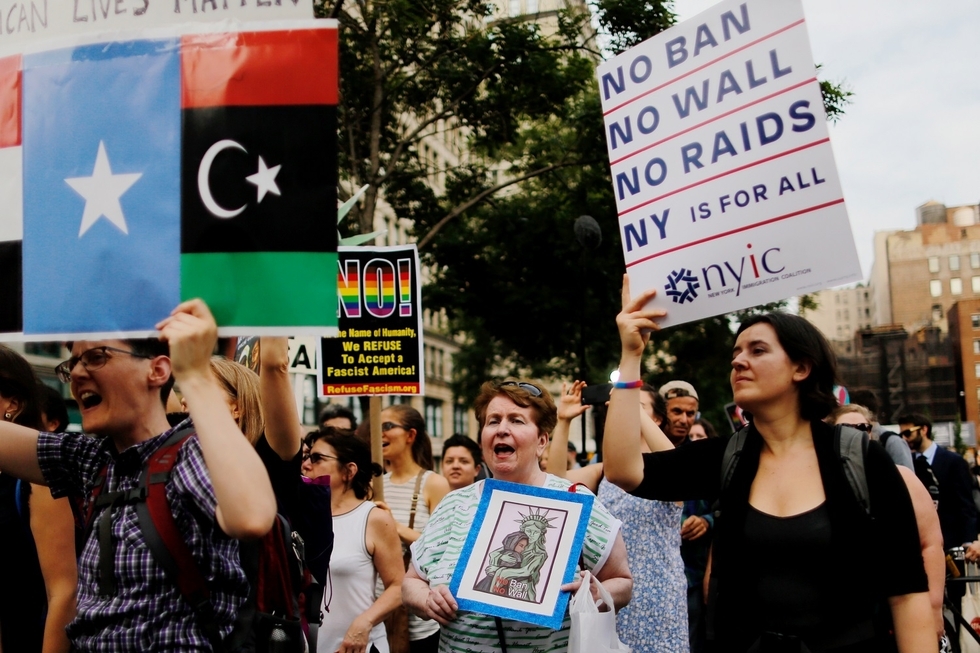US Supreme Court dismisses challenge to expired 'Muslim ban'

The US Supreme Court on Tuesday threw out an appeals court ruling that struck down President Donald Trump's now expired temporary travel ban that targeted several Muslim-majority nations countries.
The court acted in a case brought by the American Civil Liberties Union, which had sued to stop the ban contained in a March executive order
The court has not yet acted on a separate challenge brought by the state of Hawaii, which the court had also agreed to hear. That case also features a challenge to a separate 120-day refugee ban, which has not yet expired.
Within his first month of taking office in January, Trump announced a ban on seven Muslim-majority countries, which at that time included Iraq. The first executive order initially applied to visa holders and to US permanent residents, which caused chaos at airports. It was struck down by the courts and Trump's administration did not appeal the prohibition to the US Supreme Court.
In March, Trump revised the order, dropping Iraq from the list and limiting the scope of the ban.
Critics and civil rights groups denounced both decrees as discriminatory. The White House, in contrast, said the ban was necessary to prevent militant attacks. In 2015, while running for president, Trump pledged to ban all Muslims from entering the US.
After challenges in lower courts, the Supreme Court ruled that the second ban can temporarily apply to travellers who do not have bona fide relations with a US person or entity, opening the door to new legal battles over the definition of such ties.
ACLU stressed that the Supreme Court did not find lower courts, which found the ban to be illegal, wrong. In a Twitter post, the rights group vowed to fight to block "Muslim ban 3.0."
The high court was set to look at the overall legality of the ban in October, but last month Trump replaced the second ban with a new decree that indefinitely restricts travel from Iran, Libya, Syria, Yemen, Somalia, Chad and North Korea. Sudan was removed from the list.
Supreme Court justices wrote that they dismissed the case against the ban because it “expired by its own terms” on 24 September.
“We express no view on the merits,” they said in the ruling.
Middle East Eye propose une couverture et une analyse indépendantes et incomparables du Moyen-Orient, de l’Afrique du Nord et d’autres régions du monde. Pour en savoir plus sur la reprise de ce contenu et les frais qui s’appliquent, veuillez remplir ce formulaire [en anglais]. Pour en savoir plus sur MEE, cliquez ici [en anglais].




